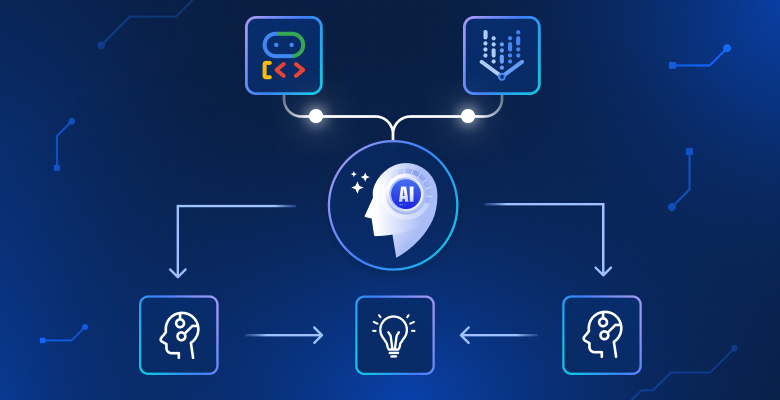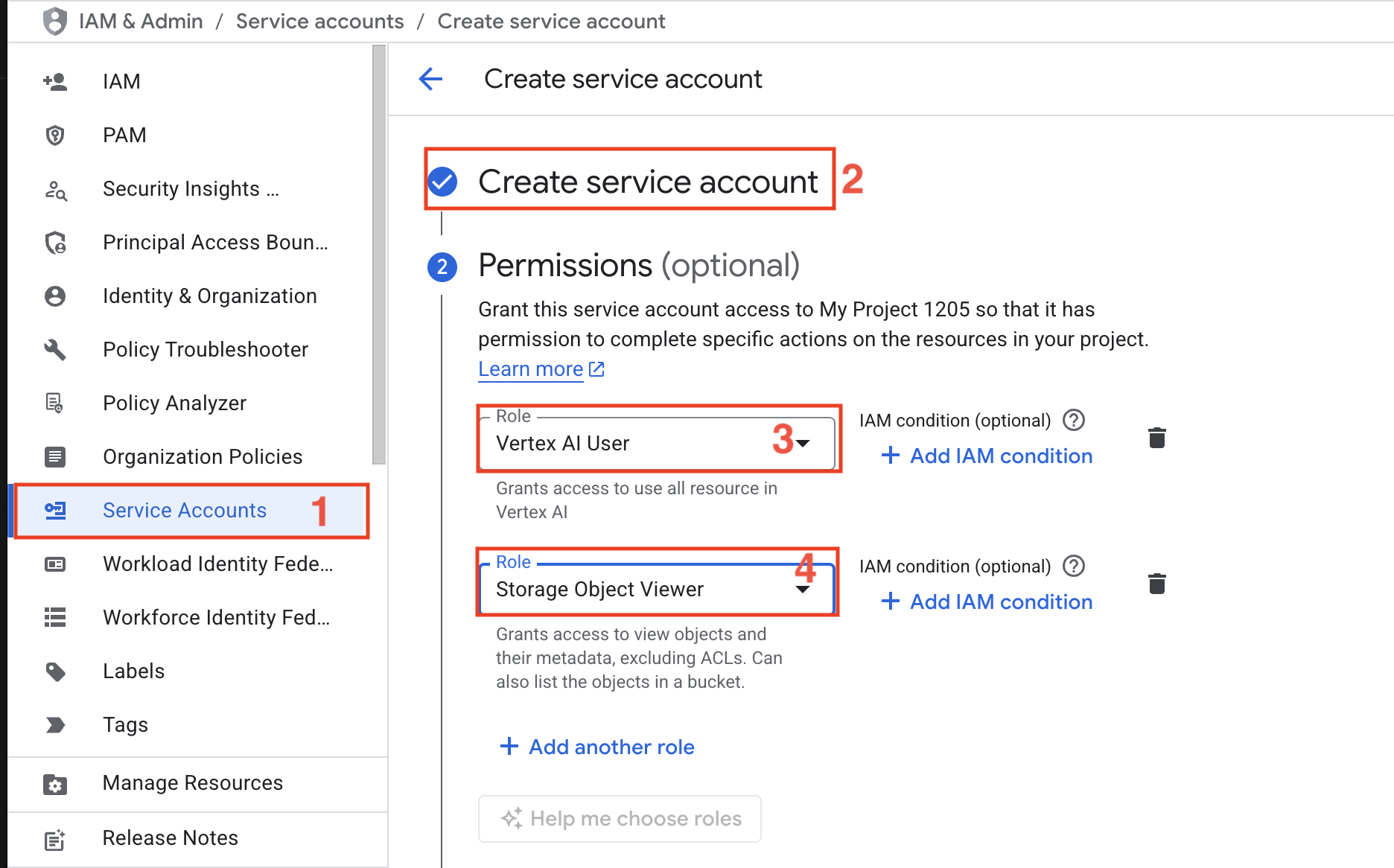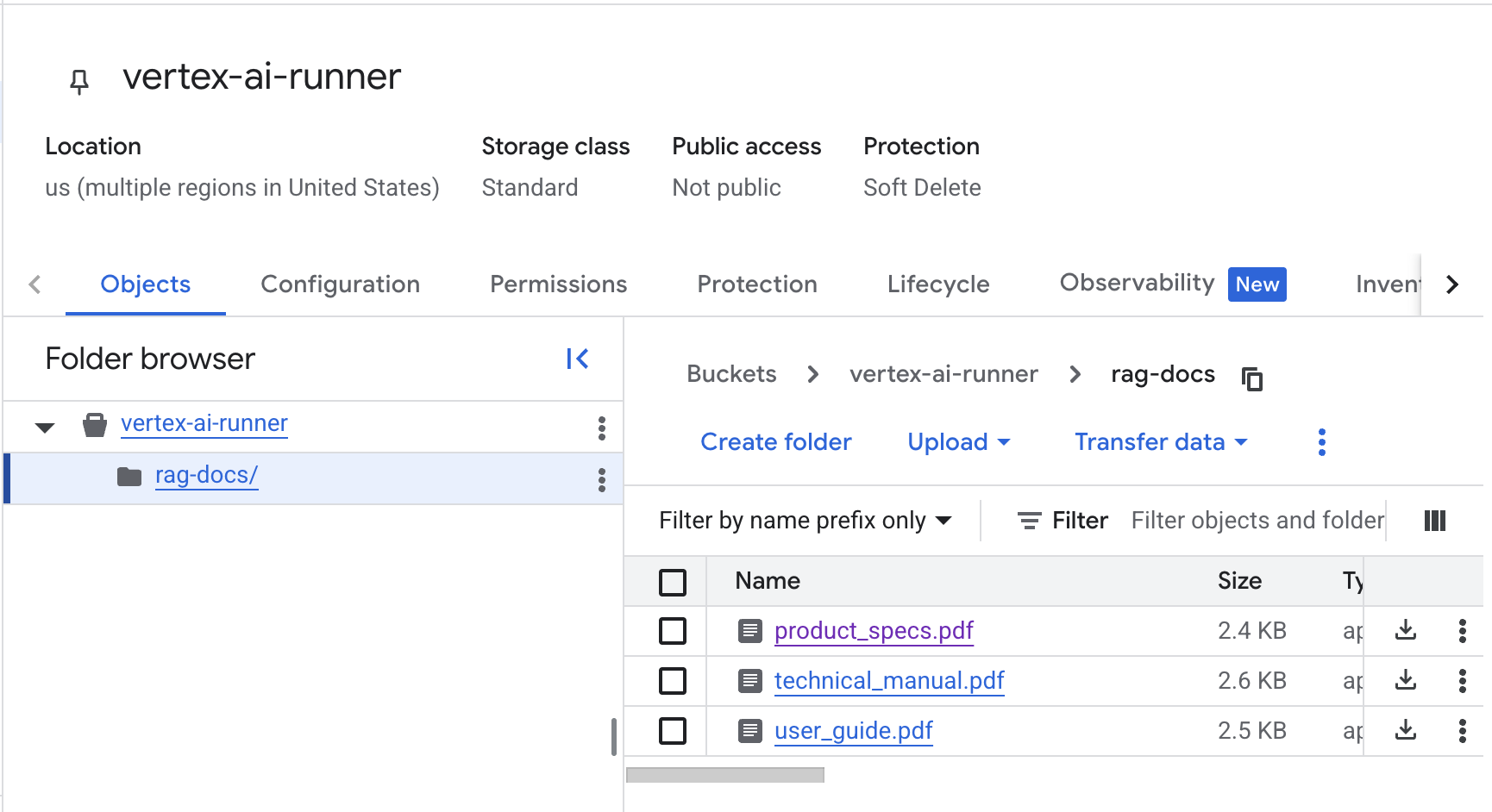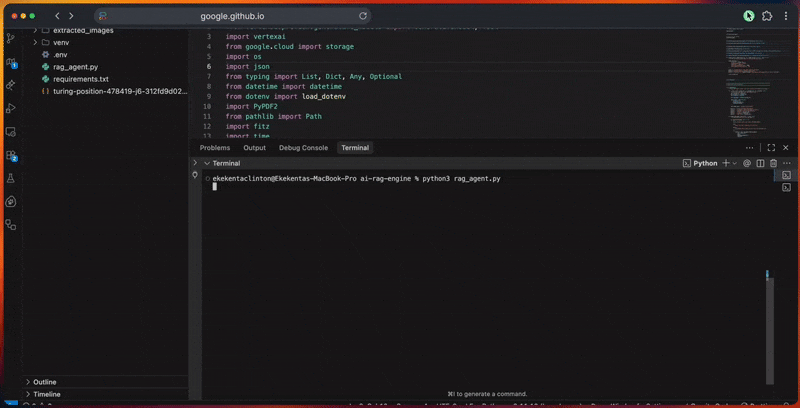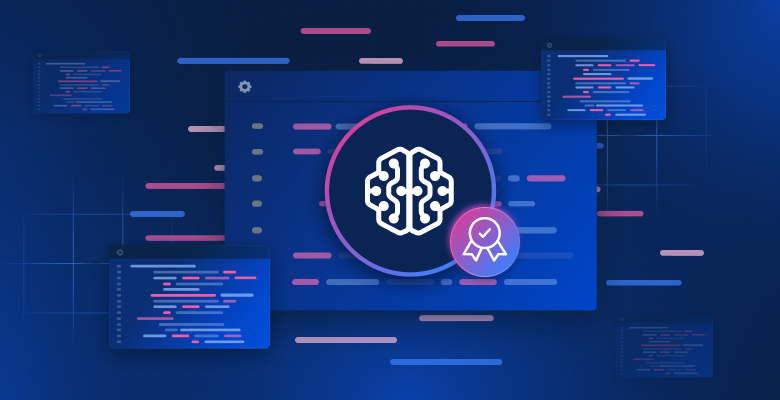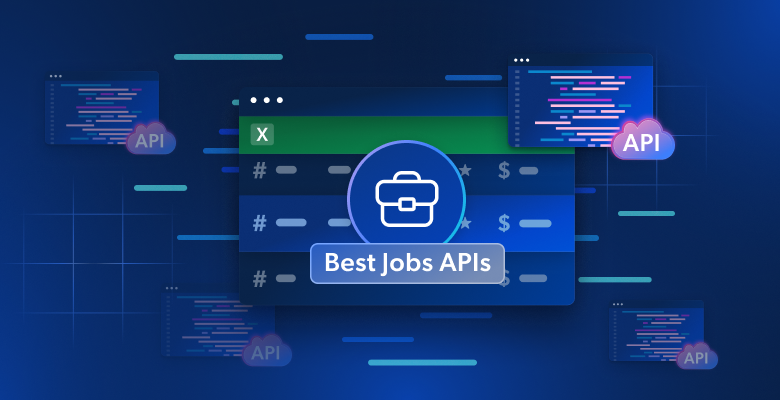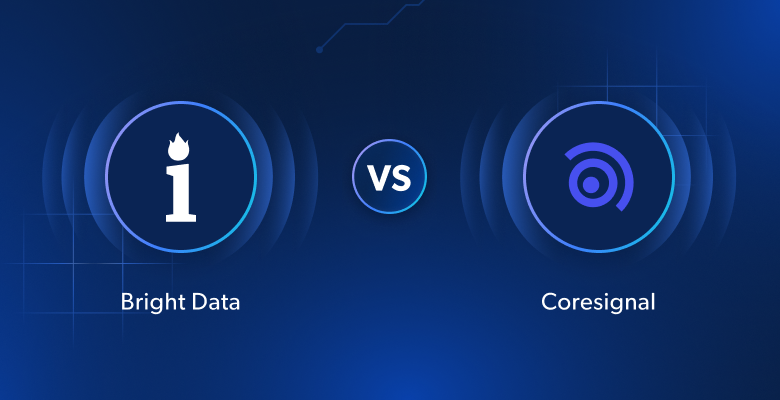In this article, you will learn:
- How to build a production-ready RAG system using Google ADK and Vertex AI RAG Engine
- How to implement hybrid search with semantic and keyword retrieval
- How to prevent hallucinations through proper grounding and citation
- How to process multi-modal content including text, images, and tables
- How to enhance your RAG with real-time web data using Bright Data integration (optional)
Let’s begin!
The Challenge of Modern Knowledge Management
Technical documentation is stored in wikis, product specifications are found in PDFs, customer data is in databases, and institutional knowledge resides in emails. Employees spend hours searching for information and often come across outdated or incomplete answers. Large language models trained on general data cannot access your proprietary knowledge. They often make mistakes when asked about company-specific information.
RAG agents solve this by retrieving relevant context from your knowledge base before generating responses. This grounds the AI in factual information, reduces hallucinations, and provides transparent citations for verification.
What We Are Building: Intelligent RAG Agent System
We’ll create a production-ready RAG agent that takes documents from various sources, processes them into searchable pieces, turns them into vector representations, retrieves relevant context using a hybrid search, and generates correct responses with proper citations and prevents inaccuracies.
The system will manage:
- Document intake from Cloud Storage, Drive, and local files
- Smart chunking with overlap and keeping metadata
- Hybrid retrieval that combines semantic similarity and keyword matching
- Multi-modal content that includes images and tables
- Citation generation for checking responses
- Detection and prevention of errors
Prerequisites
Set up your development environment with:
- Python 3.10 or higher – Required for Google ADK compatibility.
- Google Cloud Project – Create a project in the Google Cloud Console with billing enabled.
- Service Account – Create a service account with Vertex AI User and Storage Object Viewer roles.
- Google ADK – Agent Development Kit for building AI agents; See docs.
- Vertex AI API – Enable Vertex AI API in your Google Cloud project
- Python virtual environment – Keeps dependencies isolated; see the
venvdocs.
Environment Setup
Create your project directory and install dependencies:
python -m venv venv
# macOS/Linux: source venv/bin/activate
# Windows: venvScriptsactivate
pip install google-genai google-cloud-aiplatform google-cloud-storage langchain-google-vertexai pypdf python-dotenv pandas pillowCreate a new file called rag_agent.py and add the following imports:
import os
import json
import PyPDF2
import fitz
import time
import vertexai
from google import genai
from vertexai.preview import rag
from pathlib import Path
from vertexai.preview.generative_models import GenerativeModel, Tool
from google.cloud import storage
from typing import List, Dict, Any, Optional
from datetime import datetime
from dotenv import load_dotenv
from google.api_core.exceptions import ResourceExhausted
from google.genai import types
load_dotenv()Create a .env file with your credentials:
GOOGLE_CLOUD_PROJECT="your-project-id"
GOOGLE_CLOUD_LOCATION="us-central1"
GOOGLE_APPLICATION_CREDENTIALS="path/to/service-account-key.json"
GENAI_API_KEY="your-genai-api-key"
GCS_BUCKET_NAME="your-bucket-name"You need:
- Project ID: Your Google Cloud project identifier from the console
- Location: Region for Vertex AI resources (us-east1 recommended)
- Service Account Key: JSON key file downloaded from IAM & Admin
- GenAI API Key: Create from Google AI Studio
- GCS Bucket: Cloud Storage bucket for document storage
Building the RAG Agent System
Step 1: Google ADK Setup
Configure the Google ADK client and initialize Vertex AI with proper authentication. The client handles all interactions with Google’s generative AI services.
def initialize_adk():
"""Initialize Vertex AI with proper authentication."""
os.environ["GOOGLE_APPLICATION_CREDENTIALS"] = os.getenv("GOOGLE_APPLICATION_CREDENTIALS")
vertexai.init(
project=os.getenv("GOOGLE_CLOUD_PROJECT"),
location=os.getenv("GOOGLE_CLOUD_LOCATION")
)
print(f"✓ Initialized Vertex AI")
# Initialize the system
initialize_adk()The initialization establishes connections to both the GenAI client for agent operations and Vertex AI for RAG capabilities. It validates credentials and confirms the project configuration before proceeding.
Step 2: Vertex AI RAG Engine Configuration
Create a RAG corpus that serves as the foundation for your knowledge base. The corpus stores indexed documents, manages embeddings, and handles retrieval queries.
def create_rag_corpus(corpus_name: str, description: str) -> str:
"""Create a new RAG corpus for document storage and retrieval."""
try:
corpus = rag.create_corpus(
display_name=corpus_name,
description=description,
embedding_model_config=rag.EmbeddingModelConfig(
publisher_model="publishers/google/models/text-embedding-004"
)
)
corpus_id = corpus.name.split('/')[-1]
print(f"✓ Created RAG corpus: {corpus_name}")
print(f"✓ Corpus ID: {corpus_id}")
print(f"✓ Embedding model: text-embedding-004")
return corpus_id
except Exception as e:
print(f"Error creating corpus: {str(e)}")
raise
def configure_retrieval_parameters(corpus_id: str) -> Dict[str, Any]:
"""Configure retrieval parameters for optimal search performance."""
retrieval_config = {
"corpus_id": corpus_id,
"similarity_top_k": 10,
"vector_distance_threshold": 0.5,
"filter": {},
"ranking_config": {
"rank_service": "default",
"alpha": 0.5
}
}
print(f"✓ Configured retrieval parameters")
print(f" - Top K results: {retrieval_config['similarity_top_k']}")
print(f" - Distance threshold: {retrieval_config['vector_distance_threshold']}")
print(f" - Hybrid search alpha: {retrieval_config['ranking_config']['alpha']}")
return retrieval_configThe corpus creation uses Google’s text-embedding-004 model for high-quality semantic embeddings. The retrieval configuration balances semantic similarity and keyword matching through the alpha parameter, where 0.5 provides equal weighting.
Step 3: Document Ingestion Pipeline
Build a robust document ingestion pipeline that handles multiple file formats, extracts clean text, and preserves important metadata for enhanced retrieval.
def extract_text_from_pdf(file_path: str) -> Dict[str, Any]:
"""Extract text and metadata from PDF documents."""
with open(file_path, 'rb') as file:
pdf_reader = PyPDF2.PdfReader(file)
metadata = {
'source': file_path,
'num_pages': len(pdf_reader.pages),
'title': pdf_reader.metadata.get('/Title', ''),
'author': pdf_reader.metadata.get('/Author', ''),
'created_date': str(datetime.now())
}
text_content = []
for page_num, page in enumerate(pdf_reader.pages):
page_text = page.extract_text()
text_content.append({
'page': page_num + 1,
'text': page_text,
'char_count': len(page_text)
})
return {
'metadata': metadata,
'content': text_content,
'full_text': ' '.join([p['text'] for p in text_content])
}
def preprocess_document(text: str) -> str:
"""Clean and normalize document text for optimal indexing."""
text = ' '.join(text.split())
text = text.replace('x00', '')
text = text.replace('rn', 'n')
lines = text.split('n')
cleaned_lines = [
line for line in lines
if len(line.strip()) > 3
and not line.strip().isdigit()
]
return 'n'.join(cleaned_lines)The chunking strategy uses sentence boundaries to avoid breaking mid-thought, implements overlap to preserve context across chunks, and maintains metadata about chunk positions for accurate citation. The 1000-character chunk size balances retrieval precision with context completeness.
Step 4: Embedding and Indexing
Upload documents to the RAG corpus and generate vector embeddings for semantic search. The system automatically handles embedding generation and index optimization.
def chunk_document(text: str, chunk_size: int = 1000, overlap: int = 200) -> List[Dict[str, Any]]:
"""Split document into overlapping chunks for optimal retrieval."""
chunks = []
start = 0
text_length = len(text)
chunk_id = 0
while start < text_length:
end = start + chunk_size
if end < text_length:
last_period = text.rfind('.', start, end)
if last_period != -1 and last_period > start:
end = last_period + 1
chunk_text = text[start:end].strip()
if chunk_text:
chunks.append({
'chunk_id': chunk_id,
'text': chunk_text,
'start_char': start,
'end_char': end,
'char_count': len(chunk_text)
})
chunk_id += 1
start = end - overlap
print(f"✓ Created {len(chunks)} chunks with {overlap} char overlap")
return chunks
def upload_file_to_gcs(local_path: str, gcs_bucket: str) -> str:
"""Upload document to Google Cloud Storage for RAG ingestion."""
storage_client = storage.Client()
bucket = storage_client.bucket(gcs_bucket)
blob_name = f"rag-docs/{Path(local_path).name}"
blob = bucket.blob(blob_name)
blob.upload_from_filename(local_path)
gcs_uri = f"gs://{gcs_bucket}/{blob_name}"
print(f"✓ Uploaded to GCS: {gcs_uri}")
return gcs_uri
def import_documents_to_corpus(corpus_id: str, file_uris: List[str]) -> str:
"""Import documents into RAG corpus and generate embeddings."""
print(f"⚡ Starting import for {len(file_uris)} documents...")
response = rag.import_files(
corpus_name=f"projects/{os.getenv('GOOGLE_CLOUD_PROJECT')}/locations/{os.getenv('GOOGLE_CLOUD_LOCATION')}/ragCorpora/{corpus_id}",
paths=file_uris,
chunk_size=1000,
chunk_overlap=200
)
try:
if hasattr(response, 'result'):
print("⏳ Waiting for import operation to complete (this may take a minute)...")
response.result()
else:
print("✓ Import request sent.")
except Exception as e:
print(f"⚠️ Note on waiting: {e}")
print(f"✓ Documents imported and indexing triggered.")
return getattr(response, 'name', 'unknown_operation')
def create_vector_index(corpus_id: str, index_config: Dict[str, Any]) -> str:
"""Create optimized vector index for fast similarity search."""
index_settings = {
'corpus_id': corpus_id,
'distance_measure': 'COSINE',
'algorithm': 'TREE_AH',
'leaf_node_embedding_count': 1000,
'leaf_nodes_to_search_percent': 10
}
print(f"✓ Created vector index with TREE_AH algorithm")
print(f"✓ Distance measure: COSINE similarity")
print(f"✓ Optimized for {index_settings['leaf_nodes_to_search_percent']}% search coverage")
return corpus_idThe import process handles document parsing, chunking, and embedding generation automatically. The TREE_AH algorithm provides fast approximate nearest neighbor search while maintaining high recall. Cosine similarity measures angular distance between embedding vectors for semantic matching.
Step 5: Agent Development with ADK
Create the core agent architecture that manages context, handles user queries, and coordinates retrieval with response generation.
class RAGAgent:
"""Intelligent RAG agent with context management and grounding."""
def __init__(self, corpus_id: str, model_name: str = "gemini-2.5-flash"):
self.corpus_id = corpus_id
self.model_name = model_name
self.conversation_history = []
self.rag_tool = Tool.from_retrieval(
retrieval=rag.Retrieval(
source=rag.VertexRagStore(
rag_corpora=[f"projects/{os.getenv('GOOGLE_CLOUD_PROJECT')}/locations/{os.getenv('GOOGLE_CLOUD_LOCATION')}/ragCorpora/{corpus_id}"],
similarity_top_k=5,
vector_distance_threshold=0.3
)
)
)
self.model = GenerativeModel(
model_name=model_name,
tools=[self.rag_tool]
)
print(f"✓ Initialized RAG agent with {model_name}")
print(f"✓ Connected to corpus: {corpus_id}")
def manage_context(self, query: str, max_history: int = 5) -> List[Dict[str, str]]:
"""Manage conversation context with history truncation."""
self.conversation_history.append({
'role': 'user',
'content': query,
'timestamp': datetime.now().isoformat()
})
if len(self.conversation_history) > max_history * 2:
self.conversation_history = self.conversation_history[-max_history * 2:]
formatted_history = []
for msg in self.conversation_history:
formatted_history.append({
'role': msg['role'],
'parts': [msg['content']]
})
return formatted_history
def build_grounded_prompt(self, query: str, retrieved_context: List[Dict[str, Any]]) -> str:
"""Build prompt with explicit grounding instructions."""
context_text = "nn".join([
f"[Source {i+1}]: {ctx['text']}"
for i, ctx in enumerate(retrieved_context)
])
prompt = f"""You are a helpful AI assistant with access to a knowledge base.
Answer the following question using ONLY the information provided in the context below.
IMPORTANT INSTRUCTIONS:
1. Base your answer strictly on the provided context
2. If the context doesn't contain enough information, say so explicitly
3. Cite specific sources using [Source X] notation
4. Do not add information from your general knowledge
5. If you're uncertain, acknowledge it
CONTEXT:
{context_text}
QUESTION:
{query}
ANSWER:"""
return promptThe agent maintains conversation history for multi-turn interactions, manages context window size to prevent token limits, and builds prompts with explicit grounding instructions to reduce hallucinations. The RAG tool integration enables automatic retrieval during generation.
Step 6: Query Processing and Retrieval
Implement hybrid search that combines semantic understanding with keyword matching for optimal retrieval accuracy.
def hybrid_search(
self,
corpus_id: str,
query: str,
semantic_weight: float = 0.7,
top_k: int = 10
) -> List[Dict[str, Any]]:
"""Perform hybrid search with automatic retry on quota limits."""
rag_resource = rag.RagResource(
rag_corpus=f"projects/{os.getenv('GOOGLE_CLOUD_PROJECT')}/locations/{os.getenv('GOOGLE_CLOUD_LOCATION')}/ragCorpora/{corpus_id}"
)
max_retries = 3
base_delay = 90
for attempt in range(max_retries):
try:
print(f"🔍 Searching corpus (Attempt {attempt + 1})...")
results = rag.retrieval_query(
rag_resources=[rag_resource],
text=query,
similarity_top_k=top_k,
vector_distance_threshold=0.5
)
# If successful, process and return results
retrieved_chunks = []
for i, context in enumerate(results.contexts.contexts):
retrieved_chunks.append({
'rank': i + 1,
'text': context.text,
'source': context.source_uri if hasattr(context, 'source_uri') else 'unknown',
'distance': context.distance if hasattr(context, 'distance') else 0.0
})
print(f"✓ Retrieved {len(retrieved_chunks)} relevant chunks")
return retrieved_chunks
except ResourceExhausted:
wait_time = base_delay * (2 ** attempt)
print(f"⚠️ Quota hit (Limit: 5/min). Cooling down for {wait_time}s...")
time.sleep(wait_time)
except Exception as e:
print(f"❌ Retrieval error: {str(e)}")
raise
print("❌ Max retries reached. Retrieval failed.")
return []
def rerank_results(
self,
results: List[Dict[str, Any]],
query: str,
model_name: str = "gemini-2.5-flash"
) -> List[Dict[str, Any]]:
"""Rerank retrieved results based on query relevance."""
if not results:
return []
rerank_prompt = f"""Rate the relevance of each passage to the query on a scale of 0-10.
Query: {query}
Passages:
{chr(10).join([f"{i+1}. {r['text'][:200]}..." for i, r in enumerate(results)])}
Return only a comma-separated list of scores (e.g., 8,6,9,3,7)."""
model = GenerativeModel(model_name)
response = model.generate_content(rerank_prompt)
if response.text:
try:
scores = [float(s.strip()) for s in response.text.strip().split(',')]
for i, score in enumerate(scores[:len(results)]):
results[i]['rerank_score'] = score
results.sort(key=lambda x: x.get('rerank_score', 0), reverse=True)
print(f"✓ Reranked results using LLM scoring")
except Exception as e:
print(f"Warning: Reranking failed, using original order: {str(e)}")
return resultsHybrid search retrieves candidates using vector similarity, then reranking uses the LLM to score relevance based on query-specific context. This two-stage approach balances efficiency with accuracy.
Step 7: Response Generation and Grounding
Generate responses with proper citations and implement hallucination prevention through strict grounding verification.
def generate_grounded_response(
self,
agent: 'RAGAgent',
query: str,
retrieved_context: List[Dict[str, Any]],
temperature: float = 0.2
) -> Dict[str, Any]:
"""Generate response with citations and hallucination prevention."""
grounded_prompt = agent.build_grounded_prompt(query, retrieved_context)
chat = agent.model.start_chat()
response = chat.send_message(
grounded_prompt,
generation_config={
'temperature': temperature,
'top_p': 0.8,
'top_k': 40,
'max_output_tokens': 1024
}
)
return {
'answer': response.text,
'sources': retrieved_context,
'query': query,
'timestamp': datetime.now().isoformat()
}
def verify_grounding(
self,
response: str,
sources: List[Dict[str, Any]],
model_name: str = "gemini-2.5-flash"
) -> Dict[str, Any]:
"""Verify response claims are grounded in source material."""
verification_prompt = f"""Analyze if the following answer is fully supported by the provided sources.
SOURCES:
{chr(10).join([f"Source {i+1}: {s['text']}" for i, s in enumerate(sources)])}
ANSWER:
{response}
Check each claim in the answer. Respond with JSON:
{{
"is_grounded": true/false,
"unsupported_claims": ["claim1", "claim2"],
"confidence_score": 0.0-1.0
}}"""
model = GenerativeModel(model_name)
verification_response = model.generate_content(verification_prompt)
try:
json_text = verification_response.text.strip()
if '```json' in json_text:
json_text = json_text.split('```json')[1].split('```')[0].strip()
verification_result = json.loads(json_text)
print(f"✓ Grounding verification complete")
print(f" - Grounded: {verification_result.get('is_grounded', False)}")
print(f" - Confidence: {verification_result.get('confidence_score', 0.0):.2f}")
return verification_result
except Exception as e:
print(f"Warning: Grounding verification failed: {str(e)}")
return {'is_grounded': True, 'confidence_score': 0.5}The grounding verification checks that each claim in the response can be traced back to source documents. Low temperature generation (0.2) reduces creative embellishment and improves factual accuracy.
Step 8: Multi-Modal RAG Implementation
Extend the RAG system to handle images, tables, and other non-text content for comprehensive knowledge retrieval.
def extract_images_from_pdf(self, pdf_path: str, output_dir: str) -> List[Dict[str, Any]]:
"""Extract images from PDF documents for multi-modal indexing."""
doc = fitz.open(pdf_path)
images = []
os.makedirs(output_dir, exist_ok=True)
for page_num in range(len(doc)):
page = doc[page_num]
image_list = page.get_images()
for img_index, img in enumerate(image_list):
xref = img[0]
base_image = doc.extract_image(xref)
image_bytes = base_image["image"]
# Save image
image_filename = f"page{page_num + 1}_img{img_index + 1}.png"
image_path = os.path.join(output_dir, image_filename)
with open(image_path, "wb") as img_file:
img_file.write(image_bytes)
images.append({
'page': page_num + 1,
'image_path': image_path,
'format': base_image['ext'],
'size': len(image_bytes)
})
print(f"✓ Extracted {len(images)} images from PDF")
return images
def process_table_content(self, table_text: str) -> Dict[str, Any]:
"""Process and structure table data for enhanced retrieval."""
lines = table_text.strip().split('n')
if not lines:
return {}
headers = [h.strip() for h in lines[0].split('|') if h.strip()]
rows = []
for line in lines[1:]:
cells = [c.strip() for c in line.split('|') if c.strip()]
if len(cells) == len(headers):
row_dict = dict(zip(headers, cells))
rows.append(row_dict)
return {
'headers': headers,
'rows': rows,
'row_count': len(rows),
'column_count': len(headers)
}
def create_multimodal_embedding(
self,
text: str,
image_path: Optional[str] = None,
table_data: Optional[Dict[str, Any]] = None
) -> Dict[str, Any]:
"""Create unified embedding for multi-modal content."""
combined_text = text
if table_data and table_data.get('rows'):
table_desc = f"nTable with {table_data['row_count']} rows and columns: {', '.join(table_data['headers'])}n"
combined_text += table_desc
if image_path:
combined_text += f"n[Image: {Path(image_path).name}]"
return {
'text': combined_text,
'has_image': image_path is not None,
'has_table': table_data is not None,
'modalities': sum([bool(text), bool(image_path), bool(table_data)])
}Multi-modal processing extracts and indexes images and tables alongside text. The unified embedding approach combines descriptive metadata from all modalities into searchable text. This enables queries like “show me the pricing table from the Q3 report” to retrieve both the table data and surrounding context.
Step 9: Google ADK Agent Integration
Integrate Google’s Agent Development Kit (ADK) to build a better agent interface that connects to your Vertex AI RAG Engine backend. The ADK offers improved agent features, including tool calling, multi-turn conversations, and structured responses.
class ADKRAGAgent:
"""Google ADK Agent wrapper that uses Vertex AI RAG Engine as backend."""
def __init__(self, corpus_id: str, project_id: str, location: str):
"""Initialize ADK Agent with RAG capabilities."""
self.corpus_id = corpus_id
self.project_id = project_id
self.location = location
self.rag_agent = RAGAgent(corpus_id)
self.client = genai.Client(
vertexai=True,
project=project_id,
location=location
)
self.model_name = "gemini-2.0-flash-001"
print(f"✓ Initialized Google ADK Agent")
print(f" - Framework: Google ADK (genai.Client)")
print(f" - Backend: Vertex AI RAG Engine")
print(f" - Project: {project_id}")
print(f" - Location: {location}")
print(f" - RAG Corpus: {corpus_id}")
def create_rag_search_tool(self) -> types.Tool:
"""Create RAG search tool for ADK agent."""
def rag_search(query: str) -> str:
"""
Search the RAG corpus and return grounded answers.
Args:
query: The user's question to search for
Returns:
A grounded answer with citations from the knowledge base
"""
try:
results = self.rag_agent.hybrid_search(
self.corpus_id,
query,
semantic_weight=0.7,
top_k=10
)
if not results:
return "No relevant information found in the knowledge base."
reranked = self.rag_agent.rerank_results(results, query)
response = self.rag_agent.generate_grounded_response(
self.rag_agent,
query,
reranked[:5]
)
verification = self.rag_agent.verify_grounding(
response['answer'],
response['sources']
)
answer = response['answer']
if not verification.get('is_grounded', True):
answer += f"nn[Confidence: {verification.get('confidence_score', 0):.0%}]"
return answer
except Exception as e:
return f"Error searching knowledge base: {str(e)}"
rag_tool = types.Tool(
function_declarations=[
types.FunctionDeclaration(
name="rag_search",
description="Search the enterprise knowledge base using RAG (Retrieval-Augmented Generation) to find accurate, grounded answers to questions about technical documentation, product specifications, and user guides.",
parameters={
"type": "object",
"properties": {
"query": {
"type": "string",
"description": "The user's question or search query"
}
},
"required": ["query"]
}
)
]
)
self.rag_search_function = rag_search
return rag_tool
def create_agent(self) -> Dict[str, Any]:
"""Create Google ADK Agent configuration with RAG tool."""
rag_tool = self.create_rag_search_tool()
agent_instructions = """You are an intelligent RAG (Retrieval-Augmented Generation) agent with access to an enterprise knowledge base.
Your capabilities:
- Search technical documentation, product specifications, and user guides
- Provide accurate, grounded answers with citations
- Handle multi-turn conversations with context awareness
- Verify information accuracy before responding
Guidelines:
1. Always use the rag_search tool to find information before answering
2. Provide specific, detailed answers based on retrieved documents
3. Include relevant citations and sources
4. If information is not found, clearly state that
5. Maintain conversation context across multiple queries
Be helpful, accurate, and professional in all responses."""
agent_config = {
'model': self.model_name,
'instructions': agent_instructions,
'tools': [rag_tool],
'display_name': 'RAG Agent with Vertex AI (Google ADK + Vertex AI RAG Engine)'
}
print(f"✓ Created Google ADK Agent Configuration")
print(f" - Model: {self.model_name}")
print(f" - Tools: RAG Search (Vertex AI RAG Engine)")
return agent_config
def chat(self, agent_config: Dict[str, Any], query: str, session_id: str = "default") -> str:
"""Send a message to the ADK agent and get response using Google GenAI."""
self.rag_agent.manage_context(query)
try:
response = self.client.models.generate_content(
model=agent_config['model'],
contents=query,
config=types.GenerateContentConfig(
system_instruction=agent_config['instructions'],
tools=agent_config['tools'],
temperature=0.2
)
)
if response.candidates and len(response.candidates) > 0:
candidate = response.candidates[0]
if candidate.content and candidate.content.parts:
for part in candidate.content.parts:
if hasattr(part, 'function_call') and part.function_call:
function_name = part.function_call.name
function_args = part.function_call.args
print(f" → ADK Agent calling tool: {function_name}")
if function_name == "rag_search":
query_arg = function_args.get("query", query)
tool_result = self.rag_search_function(query_arg)
response = self.client.models.generate_content(
model=agent_config['model'],
contents=[
types.Content(role="user", parts=[types.Part(text=query)]),
types.Content(role="model", parts=[part]),
types.Content(
role="function",
parts=[types.Part(
function_response=types.FunctionResponse(
name=function_name,
response={"result": tool_result}
)
)]
)
],
config=types.GenerateContentConfig(
system_instruction=agent_config['instructions'],
tools=agent_config['tools'],
temperature=0.2
)
)
elif hasattr(part, 'text') and part.text:
answer = part.text
self.rag_agent.conversation_history.append({
'role': 'assistant',
'content': answer,
'timestamp': datetime.now().isoformat()
})
return answer
if response.candidates and response.candidates[0].content.parts:
for part in response.candidates[0].content.parts:
if hasattr(part, 'text') and part.text:
answer = part.text
self.rag_agent.conversation_history.append({
'role': 'assistant',
'content': answer,
'timestamp': datetime.now().isoformat()
})
return answer
return "No response generated."
except Exception as e:
error_msg = f"Error in ADK agent chat: {str(e)}"
print(f"❌ {error_msg}")
return error_msgThe ADK integration adds Google’s agent framework to your existing RAG agent. The ADKRAGAgent class sets up a genai.Client for agent operations and uses your RAGAgent for retrieval. The create_rag_search_tool method defines a function that the agent can call, allowing it to search your knowledge base using the Vertex AI RAG Engine.
The tool calling mechanism lets the agent automatically determine when to search the knowledge base based on user queries. When a search is necessary, it runs the hybrid search pipeline, reorders results, generates grounded responses, and checks accuracy before providing answers. The chat method manages the entire conversation flow, including tool execution and multi-turn context management.
Step 10: Supercharge Your RAG with Real-Time Web Data from Bright Data
While your RAG system excels at retrieving information from your internal knowledge base, enterprise AI applications often require fresh, real-time data from external sources. This is where Bright Data’s web data platform becomes invaluable, enabling your RAG agent to access live information from across the web, keeping your knowledge base current and comprehensive.
Why Integrate Bright Data with Your RAG System?
1. Keep Your Knowledge Base Fresh
- Automatically update your RAG corpus with the latest product information, pricing data, competitor intelligence, and market trends
- Eliminate stale data that leads to outdated AI responses
- Schedule periodic data refreshes to maintain accuracy
2. Expand Beyond Internal Documents
- Access real-time data from 120+ popular websites including e-commerce platforms, news sites, social media, and industry-specific sources
- Augment your technical documentation with live API documentation, community discussions, and updated specifications
- Pull in customer reviews, feedback, and sentiment data to enhance your product knowledge base
3. Enable Dynamic Query Enhancement
- When your RAG agent detects a query requiring current information (prices, availability, recent news), automatically fetch fresh data
- Combine internal knowledge with external web data for comprehensive answers
- Provide users with both historical context and up-to-date information
4. Scale Data Collection Effortlessly
- No need to manage proxies, handle CAPTCHAs, or deal with anti-bot systems
- Bright Data handles all infrastructure, unblocking, and data quality
- Focus on AI development while Bright Data handles data acquisition
Implementation: Adding Bright Data to Your RAG Pipeline
Let’s extend your RAG system with Bright Data’s capabilities. We’ll add three integration patterns: Dataset Integration for pre-collected data, Web Scraper API for real-time scraping, and AI Scrapers for enriched AI-generated insights.
Pattern 1: Dataset Integration for Historical Data
Use Bright Data’s Dataset Marketplace to quickly populate your RAG corpus with high-quality, structured data.
import requests
from typing import List, Dict
import json
class BrightDataRAGEnhancer:
"""Enhance RAG system with Bright Data web data capabilities."""
def __init__(self, api_key: str, rag_agent: RAGAgent):
self.api_key = api_key
self.rag_agent = rag_agent
self.base_url = "https://api.brightdata.com"
def fetch_dataset_data(
self,
dataset_id: str,
filters: Dict[str, Any] = None,
limit: int = 1000
) -> List[Dict[str, Any]]:
"""Fetch data from Bright Data Dataset Marketplace."""
headers = {
"Authorization": f"Bearer {self.api_key}",
"Content-Type": "application/json"
}
endpoint = f"{self.base_url}/datasets/v3/snapshot/{dataset_id}"
params = {
"format": "json",
"limit": limit
}
if filters:
params["filter"] = json.dumps(filters)
response = requests.get(endpoint, headers=headers, params=params)
response.raise_for_status()
print(f"✓ Retrieved {len(response.json())} records from dataset {dataset_id}")
return response.json()
def ingest_dataset_to_rag(
self,
corpus_id: str,
dataset_records: List[Dict[str, Any]],
text_fields: List[str]
) -> None:
"""Process dataset records and add them to RAG corpus."""
processed_chunks = []
for record in dataset_records:
# Combine specified text fields into searchable content
combined_text = " ".join([
str(record.get(field, ""))
for field in text_fields
if record.get(field)
])
if combined_text.strip():
# Add metadata for better retrieval
metadata = {
"source": "bright_data_dataset",
"record_id": record.get("id", "unknown"),
"ingestion_date": datetime.now().isoformat(),
"data_type": "external_web_data"
}
# Chunk the content
chunks = chunk_document(combined_text, chunk_size=1000, overlap=200)
for chunk in chunks:
chunk['metadata'] = metadata
processed_chunks.append(chunk)
print(f"✓ Processed {len(processed_chunks)} chunks from dataset")
# Create temporary file for upload
temp_file = "temp_dataset_content.txt"
with open(temp_file, 'w') as f:
for chunk in processed_chunks:
f.write(chunk['text'] + "\n\n")
# Upload to GCS and import to corpus
gcs_uri = upload_file_to_gcs(temp_file, os.getenv('GCS_BUCKET_NAME'))
import_documents_to_corpus(corpus_id, [gcs_uri])
os.remove(temp_file)
print(f"✓ Added dataset content to RAG corpus")Use Case Example: Populate your e-commerce RAG with product data
# Create a RAG corpus first
corpus_id = create_rag_corpus(
corpus_name="bright_data_corpus",
description="Corpus for Bright Data enhanced RAG"
)
# Initialize RAG agent with corpus
rag_agent = RAGAgent(corpus_id=corpus_id)
# Initialize enhancer
enhancer = BrightDataRAGEnhancer(
api_key=os.getenv("BRIGHT_DATA_API_KEY"),
rag_agent=rag_agent
)
print("✓ BrightDataRAGEnhancer initialized successfully!")
# Fetch Amazon product data
amazon_data = enhancer.fetch_dataset_data(
dataset_id="gd_l7q7dkf244hwxr90h", # Amazon products dataset
filters={"category": "Electronics"},
limit=5000
)
# Ingest into RAG corpus
enhancer.ingest_dataset_to_rag(
corpus_id=corpus_id,
dataset_records=amazon_data,
text_fields=["title", "description", "features", "reviews"]
)Pattern 2: Real-Time Web Scraper API Integration
For dynamic, up-to-date information, integrate Bright Data’s Web Scraper API directly into your RAG agent’s query pipeline.
def scrape_real_time_data(
self,
scraper_id: str,
inputs: List[Dict[str, Any]],
wait_for_completion: bool = True
) -> List[Dict[str, Any]]:
"""Execute real-time web scraping using Bright Data scrapers."""
headers = {
"Authorization": f"Bearer {self.api_key}",
"Content-Type": "application/json"
}
# Trigger scraper
trigger_url = f"{self.base_url}/dca/trigger"
params = {
"scraper": scraper_id,
"queue_next": 1
}
response = requests.post(
trigger_url,
headers=headers,
params=params,
json=inputs
)
response.raise_for_status()
snapshot_id = response.json().get("snapshot_id")
print(f"✓ Scraper triggered. Snapshot ID: {snapshot_id}")
if not wait_for_completion:
return {"snapshot_id": snapshot_id, "status": "processing"}
# Poll for results
results_url = f"{self.base_url}/dca/dataset"
params = {"id": snapshot_id}
max_retries = 30
for i in range(max_retries):
time.sleep(10) # Wait 10 seconds between polls
results_response = requests.get(results_url, headers=headers, params=params)
if results_response.status_code == 200:
data = results_response.json()
print(f"✓ Scraping complete. Retrieved {len(data)} records")
return data
elif results_response.status_code == 202:
print(f"⏳ Still processing... ({i+1}/{max_retries})")
continue
else:
print(f"❌ Error retrieving results: {results_response.status_code}")
break
return []
def create_dynamic_rag_tool(self) -> types.Tool:
"""Create RAG tool with real-time web data augmentation."""
def augmented_rag_search(query: str, include_live_data: bool = False) -> str:
"""
Search knowledge base with optional real-time web data enrichment.
Args:
query: The user's question
include_live_data: Whether to fetch fresh web data
Returns:
Grounded answer combining internal and external data
"""
# First, search internal knowledge base
internal_results = self.rag_agent.hybrid_search(
corpus_id=self.rag_agent.corpus_id,
query=query,
top_k=5
)
combined_results = internal_results
# If query requires current information, fetch live data
if include_live_data or self._requires_fresh_data(query):
print("🌐 Fetching real-time web data...")
# Example: Scrape pricing information
if "price" in query.lower() or "cost" in query.lower():
live_data = self.scrape_real_time_data(
scraper_id="your_product_scraper_id",
inputs=[{"url": "https://example.com/products"}],
wait_for_completion=True
)
# Convert live data to searchable chunks
for record in live_data[:3]: # Top 3 results
combined_results.append({
'rank': len(combined_results) + 1,
'text': f"{record.get('title', '')}: {record.get('price', '')} - {record.get('description', '')}",
'source': f"Live web data: {record.get('url', 'unknown')}",
'distance': 0.3 # High relevance for fresh data
})
# Generate response with all available context
response = self.rag_agent.generate_grounded_response(
self.rag_agent,
query,
combined_results
)
return response['answer']
return types.Tool(
function_declarations=[
types.FunctionDeclaration(
name="augmented_rag_search",
description="Search internal knowledge base and optionally fetch real-time web data for current information",
parameters={
"type": "object",
"properties": {
"query": {"type": "string", "description": "User's question"},
"include_live_data": {"type": "boolean", "description": "Fetch fresh web data"}
},
"required": ["query"]
}
)
]
)
def _requires_fresh_data(self, query: str) -> bool:
"""Determine if query requires real-time data."""
fresh_data_keywords = [
"latest", "current", "today", "now", "recent",
"price", "cost", "available", "in stock"
]
return any(keyword in query.lower() for keyword in fresh_data_keywords)Pattern 3: AI Scraper Integration for Enriched Intelligence
Leverage Bright Data’s AI Scrapers (ChatGPT, Perplexity, Gemini) to augment your RAG with AI-generated insights and comprehensive web context.
def query_ai_scraper(
self,
scraper_type: str,
prompt: str,
country_code: str = "us"
) -> Dict[str, Any]:
"""Query AI scrapers (ChatGPT, Perplexity, etc.) for enriched context."""
scraper_ids = {
"chatgpt": "chatgpt_scraper_id",
"perplexity": "perplexity_scraper_id",
"gemini": "gemini_scraper_id"
}
inputs = [{
"prompt": prompt,
"country": country_code
}]
results = self.scrape_real_time_data(
scraper_id=scraper_ids.get(scraper_type),
inputs=inputs,
wait_for_completion=True
)
if results:
return {
"answer": results[0].get("answer", ""),
"sources": results[0].get("sources", []),
"citations": results[0].get("citations", [])
}
return {}
def create_hybrid_intelligence_agent(self) -> Dict[str, Any]:
"""Create agent that combines RAG with AI scraper intelligence."""
def hybrid_search(query: str) -> str:
"""
Combine internal RAG with external AI scraper intelligence.
This provides:
1. Internal knowledge base context
2. Real-time AI-generated insights from the web
3. Comprehensive, well-sourced answers
"""
# Get internal knowledge
internal_answer = self.rag_agent.hybrid_search(
corpus_id=self.rag_agent.corpus_id,
query=query,
top_k=3
)
internal_context = "\n".join([r['text'][:200] for r in internal_answer])
# Get AI scraper enrichment
print("🤖 Fetching AI-enhanced web intelligence...")
ai_insight = self.query_ai_scraper(
scraper_type="perplexity", # Known for well-sourced answers
prompt=query
)
# Synthesize both sources
synthesis_prompt = f"""Synthesize a comprehensive answer using both internal knowledge and external AI insights.
INTERNAL KNOWLEDGE BASE:
{internal_context}
EXTERNAL AI INSIGHTS:
{ai_insight.get('answer', 'No external insights available')}
SOURCES:
{json.dumps(ai_insight.get('citations', []), indent=2)}
QUESTION: {query}
Provide a complete answer that:
1. Prioritizes internal knowledge for company-specific information
2. Uses external insights for broader context and recent developments
3. Clearly cites all sources
4. Indicates when information comes from external vs internal sources"""
model = GenerativeModel("gemini-2.0-flash-001")
response = model.generate_content(synthesis_prompt)
return response.text
return {
'search_function': hybrid_search,
'description': 'Hybrid RAG + AI Scraper Intelligence System'
}Running Your RAG Agent System
Bring all components together into a complete workflow that processes documents, handles queries, and generates grounded responses. Also, download the PDF documents you want to process and place them in the docs/ folder to enable the AI build context about your product.
def main():
"""Main execution flow for the RAG agent system."""
print("=" * 60)
print("RAG Agent System - Initialization")
print("=" * 60)
initialize_adk()
corpus_id = create_rag_corpus(
corpus_name="enterprise-knowledge-base-3",
description="Multi-modal enterprise documentation and knowledge repository"
)
retrieval_config = configure_retrieval_parameters(corpus_id)
print(f"n✓ Using retrieval config with top_k={retrieval_config['similarity_top_k']}")
print("n" + "=" * 60)
print("Document Ingestion Pipeline")
print("=" * 60)
document_paths = [
"docs/technical_manual.pdf",
"docs/product_specs.pdf",
"docs/user_guide.pdf"
]
gcs_uris = []
all_chunks = []
extracted_images = []
for doc_path in document_paths:
if os.path.exists(doc_path):
extracted = extract_text_from_pdf(doc_path)
print(f"n✓ Extracted {extracted['metadata']['num_pages']} pages from {Path(doc_path).name}")
cleaned_text = preprocess_document(extracted['full_text'])
print(f"✓ Preprocessed text: {len(cleaned_text)} characters")
chunks = chunk_document(cleaned_text, chunk_size=1000, overlap=200)
all_chunks.extend(chunks)
print(f"✓ Document chunked into {len(chunks)} segments")
gcs_uri = upload_file_to_gcs(doc_path, os.getenv('GCS_BUCKET_NAME'))
gcs_uris.append(gcs_uri)
print(f"n✓ Total chunks created: {len(all_chunks)}")
print(f"✓ Total images extracted: {len(extracted_images)}")
if gcs_uris:
import_documents_to_corpus(corpus_id, gcs_uris)
index_config = {"distance_measure": "COSINE", "algorithm": "TREE_AH"}
create_vector_index(corpus_id, index_config)
time.sleep(180)
# ========================================================================
# Initialize Google ADK Agent with Vertex AI RAG Engine
# ========================================================================
print("n" + "=" * 60)
print("Google ADK Agent Initialization")
print("=" * 60)
adk_agent = ADKRAGAgent(
corpus_id=corpus_id,
project_id=os.getenv("GOOGLE_CLOUD_PROJECT"),
location=os.getenv("GOOGLE_CLOUD_LOCATION")
)
agent = adk_agent.create_agent()
for doc_path in document_paths:
if os.path.exists(doc_path):
try:
images = adk_agent.rag_agent.extract_images_from_pdf(doc_path, "extracted_images")
extracted_images.extend(images)
if images:
print(f"✓ Extracted {len(images)} images for multi-modal processing")
except Exception as e:
print(f"⚠️ Image extraction skipped: {str(e)}")
queries = [
"What are the system requirements for installation?",
"How do I configure the authentication settings?",
"What are the pricing tiers and their features?"
]
print("n" + "=" * 60)
print("Google ADK Agent - Query Processing")
print("=" * 60)
print("Using: Google ADK + Vertex AI RAG Engine")
print("=" * 60)
session_id = f"session_{datetime.now().strftime('%Y%m%d_%H%M%S')}"
for idx, query in enumerate(queries):
print(f"n📝 Query {idx + 1}: {query}")
print("-" * 60)
try:
answer = adk_agent.chat(agent, query, session_id)
print(f"n💬 ADK Agent Response:n{answer}n")
print(f"✓ Conversation history: {len(adk_agent.rag_agent.conversation_history)} messages")
except Exception as e:
print(f"❌ Error: {str(e)}")
import traceback
traceback.print_exc()
print("-" * 60)
if idx < len(queries) - 1:
time.sleep(90)
if extracted_images:
print("n" + "=" * 60)
print("Multi-Modal Processing Demo")
print("=" * 60)
sample_table = """Feature | Basic | Pro | Enterprise
Storage | 10GB | 100GB | Unlimited
Users | 1 | 10 | Unlimited
Price | $10 | $50 | Custom"""
table_data = adk_agent.rag_agent.process_table_content(sample_table)
print(f"n✓ Processed table with {table_data.get('row_count', 0)} rows")
if all_chunks and extracted_images:
multimodal_embed = adk_agent.rag_agent.create_multimodal_embedding(
text=all_chunks[0]['text'][:500],
image_path=extracted_images[0]['image_path'] if extracted_images else None,
table_data=table_data
)
print(f"✓ Created multi-modal embedding with {multimodal_embed['modalities']} modalities")
print(f" - Has image: {multimodal_embed['has_image']}")
print(f" - Has table: {multimodal_embed['has_table']}")
print("n" + "=" * 60)
print(f"Google ADK RAG Agent System - Complete")
print(f"✓ Architecture: Google ADK + Vertex AI RAG Engine")
print(f"✓ Total conversation turns: {len(adk_agent.rag_agent.conversation_history)}")
print("=" * 60)
if __name__ == "__main__":
try:
main()
except Exception as e:
print(f"n❌ Error: {str(e)}")
import traceback
traceback.print_exc()Run the RAG agent system:
python3 rag_agent.pyYou will see the agent’s processing pipeline in the console as it:
- Initializes the Google ADK client and Vertex AI connection.
- Creates the RAG corpus with embedding model configuration.
- Processes documents by extracting, cleaning, and chunking them.
- Uploads files to Cloud Storage and imports them into the corpus.
- Generates vector embeddings and builds the search index.
- Executes queries with expansion, retrieval, and reranking.
- Produces grounded responses with citations and verification.
- Scores response quality based on relevance, completeness, accuracy, and clarity.
The console output shows detailed progress for each step.
Final Thoughts
You now have a production-ready RAG agent system combining Google’s Agent Development Kit with Vertex AI. The system ingests documents, retrieves relevant context via hybrid search, and generates accurate responses with citations.
Enhance it by improving chunking strategies, adding feedback loops, integrating additional data sources, or enabling real-time monitoring. The modular design allows easy customization.
Explore advanced AI workflows and Bright Data’s AI infrastructure for more capabilities.
Create a free account to start building.

